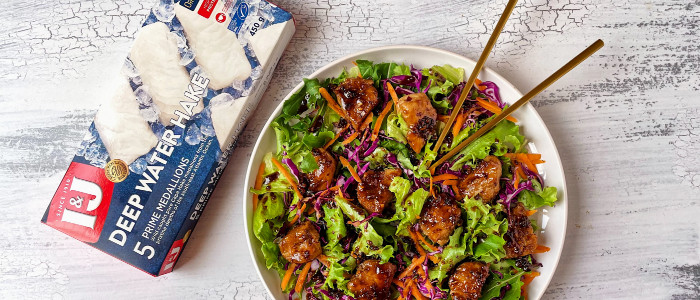
September is Heart Awareness Month and one of the best ways to keep your heart healthy is to eat fish 2 to 3 times a week. With campaign ‘#FeelGoodSeafood’, the Marine Stewardship Council (MSC) in partnership with Irvin & Johnson (I&J), encourages South Africans to take care of their hearts and our ocean.
Up to 80 percent of heart disease and stroke can be prevented by simply living a healthy lifestyle that includes healthy eating. Fish is a high-protein option and contains important vitamins and minerals, including Omega-3 fatty acids, which are good for your heart and can help to improve overall health.
The Heart and Stroke Foundation of South Africa (HSFSA) recommends eating at least 2 to 3 servings of fish in their weekly diet. The HSFSA’s Heart Mark logo can be seen on selected seafood products and guides consumers in making the healthier food product choices.
Independent insights consultancy, GlobeScan, shows that health is the top motivator for purchasing seafood among South African shoppers. But 1 in 2 of these seafood consumers are concerned that their favourite fish won’t be available to eat in 20 years’ time.
It’s a known fact that our oceans are in crisis. Overfishing, climate change and pollution are putting marine ecosystems under immense pressure. That’s why for plenty more fish to be left in the sea, seafood consumers agree that buying fish and seafood from sustainable sources is vital.
Fortunately, some key labels can empower consumers to make smart and sustainable choices. The Marine Stewardship Council (MSC) ‘blue fish’ ecolabel indicates seafood that can be traced to a sustainable source from ocean to plate, and is often seen next to HSFSA’s Heart Mark on pack.
Seafood you can feel good about
In celebration of World Heart Day, 29 September, the independent non-profit organisation is encouraging consumers to start paying closer attention to the labels on seafood. To support this effort, the MSC in partnership with household name seafood brand, Irvin and Johnson (I&J), and with the support of the Heart and Stroke Foundation South Africa are running their annual campaign dubbed ‘#FeelGoodSeafood’. The aim is to raise consumer awareness of heart-healthy and sustainable seafood; easily identifiable in-store by simply looking for the blue MSC ecolabel and the Heart Mark logo on seafood packaging. Here’s how this little choice in the supermarket can make a big difference to the planet:
- You’re ensuring wild fish is abundant to enjoy for years to come
Unsustainable fishing is a major international problem. In 1974, 90% of fish stocks were fished within biologically sustainable levels. Latest UN data shows that now less than two-thirds are within these levels, putting this vital source of nutrition for millions at risk. By buying fish from sustainable
fisheries certified to the MSC’s scientific standard, you’re encouraging more retailers to stock sustainably sourced seafood and more fisheries to improve their environmental impact and become certified.
- You’re supporting whole ecosystems
The oceans are home to an extraordinary diversity of life, in fact up to 80% of all animal life on earth is found under the ocean surface. However, as well as reducing the amount of fish there is in the sea, unsustainable fishing affects local habitats and endangered species. Overfishing and bycatch are the two leading threats to ocean biodiversity. This is why the MSC’s Standard requires fisheries to show evidence they are not having a long-term or irreversible impact on vulnerable marine ecosystems.
- You’re choosing a low carbon source of animal protein
As well as being a vital source of nutrition for millions, wild seafood is a relatively low carbon source of animal protein because it doesn't require land or feed to produce as with other sources of protein such as eggs, chicken and beef. Studies show that catching a kilo of fish emits a much smaller proportion of CO2 compared to producing a kilo of red meat. Sustainable fishing, therefore, has a vital role to play in ensuring a secure food system while we also address the challenges of climate change.
- You’re supporting livelihoods
The UN Food and Agriculture Organisation estimates that globally the livelihoods of 1 in 10 people depend on fishing and aquaculture. Some coastal communities depend directly on fish for food security, but many more rely on the income from fishing to sustain them and their families, with about 50 million people directly employed in the seafood sector. By choosing seafood products with the blue MSC label you are directly supporting fishers that take care of our oceans and encouraging others to do the same.
- You're joining a collective movement for change
To achieve a big blue future, and continue enjoying the seafood we love, we must all come together and show our passion for our oceans through the actions we take. By choosing seafood from sustainable sources, you’re joining a collective movement for change - you can take pride in protecting our powerful, awe-inspiring oceans. Because what you choose today can help protect tomorrow.
For more information please contact:
Marine Stewardship Council: Louanne Mostert, Marketing & Communications Manager:
louanne.mostert@msc.org |+ 27 (0)83 874 3067



